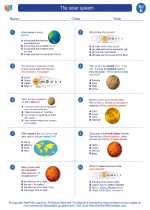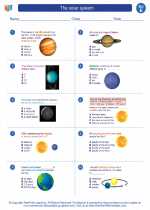Islands
An island is a piece of land that is completely surrounded by water. Islands can be found in oceans, seas, rivers, and lakes. They come in different sizes, from small islets to large landmasses like Greenland and Australia.
Formation of Islands
Islands can be formed in several ways:
- Volcanic Activity: Some islands are formed through volcanic eruptions. When molten rock, ash, and gases are ejected from the Earth's mantle, they can build up and form islands over time.
- Deposition: Sediments carried by rivers, glaciers, or ocean currents can accumulate and form islands. For example, sandbars and barrier islands are formed through the deposition of sediment by ocean currents.
- Tectonic Uplift: Islands can also be formed when tectonic plates shift, causing the land to rise above sea level. This process can create islands like the Galapagos Islands.
Types of Islands
Islands can be classified into different types based on their origins:
- Continental Islands: These islands were once part of a continent but were separated by rising sea levels or tectonic activity. Examples include the British Isles and Borneo.
- Barrier Islands: Long, narrow islands parallel to the mainland, separated by a lagoon or a bay. They protect the mainland from waves and storm surges.
- Coralline Islands: These islands are formed from the accumulation of coral reef and are typically found in tropical waters.
- Artificial Islands: Humans can create islands by dredging and piling up sand and rocks. Examples include the Palm Islands in Dubai.
Ecological Importance
Islands are home to unique ecosystems and species that have evolved in isolation. They often have high levels of endemism, meaning species are found nowhere else on Earth. However, they are also highly vulnerable to human activities and invasive species.
Study Guide
Here are some key points to remember about islands:
- Explain the formation of islands through volcanic activity, deposition, and tectonic uplift.
- Identify and describe different types of islands, such as continental, barrier, coralline, and artificial islands.
- Understand the ecological importance of islands and the challenges they face due to human activities and invasive species.
Islands are fascinating landforms that play a crucial role in our planet's biodiversity and geology. Understanding their formation and ecological significance is important for conserving these unique environments.
.◂Science Worksheets and Study Guides Fifth Grade. The solar system

 Worksheet/Answer key
Worksheet/Answer key
 Worksheet/Answer key
Worksheet/Answer key
 Worksheet/Answer key
Worksheet/Answer key
 Vocabulary/Answer key
Vocabulary/Answer key
 Vocabulary/Answer key
Vocabulary/Answer key
 Vocabulary/Answer key
Vocabulary/Answer key
